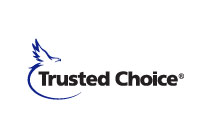
Call Now
- Washington Sheet Metal Work Shops Approved by the Web’s Leading Job Shop …
- OSHA cites Long Island, NY, Machine Shop for Failing to Correct Previously …
- Simtek facing $139K in fines from OSHA
- Texas Steel Fabrication Shops to Support The Buy American AMSN Movement
- Machining & Fabrication in Alaska: AMSN Helps Businesses in the Last Frontier …
- PA job shop Smucker adds Trumpf laser cutter
- Clark County at Work: Hi-Tech Metal Fabrication Inc.
- Washington Sheet Metal Work Shops Approved by the Web’s …
Watch Useful Tips on how to save money on Your Business and much more.
Flood victim goes to Congress – Wilkes Barre Times
SBA loans Pittston businessman tells congressional committee about need for government help
Posted:Today
Updated: 2:40 AM
By Steve Mocarsky smocarsky@timesleader.com
Luzerne County Reporter |  Steve Mocarsky on Facebook
Steve Mocarsky on Facebook
PITTSTON – Gino Tighe had $1 million of flood insurance on his family’s metal fabrication business. It wasn’t nearly enough.

Gino Tighe stands in his Pittston metal fabrication plant next to a pile of wiring that was ruined in September flooding. His Benedict Street plant took on as much as 15 feet of water, which destroyed machinery inside worth more than $2 million. That didn’t include damage to the building itself. Tighe testified before a congressional committee Thursday about a lower interest rate for federal loans for disaster victims.
Aimee Dilger/The Times Leader

Gino Tighe stands in his Pittston metal fabrication plant next to a machine ruined in September flooding.
Aimee Dilger/The Times Leader
Additional Photos Below
To read testimony from the hearing and watch a video of Barletta’s remarks visit
When the Susquehanna River overflowed its banks in September, his Benedict Street plant took on as much as 15 feet of water, which destroyed machinery inside worth more than $2 million. That didn’t include damage to the building itself.
Tighe’s flood insurance – the maximum amount available – covered only $500,000 in loss to the structure and another $500,000 for building contents.
A Small Business Administration loan for disaster victims would have helped recovery tremendously, Tighe said on Friday, but not at an interest rate of 6 percent.
That’s why Tighe spent the day in Washington, D.C., on Thursday. He was one of several people to testify before the House Small Business Committee’s Subcommittee on Economic Growth, Tax and Capital Access.
The hearing, titled “Examining the Role of Government Assistance for Disaster Victims: A Review of H.R. 3042,” provided the subcommittee with information on the role of the federal government in long-term disaster recovery and programs offered by state and federal government.
After Tighe described his dealings with the SBA, the subcommittee heard expert testimony about potential consequences of legislation proposed by U.S. Rep. Lou Barletta, R-Hazleton.
Barletta’s bill, House Resolution 3042 – the Disaster Loan Fairness Act, would cut the interest rate on all SBA disaster recovery loans to 1 percent for 30 years.
Describing the devastation
In his testimony, Tighe described the devastation to his family’s business and the defeat in the eyes of his father, Gene, who started the business with his wife Debbie in 1989. “We desperately needed financial help because we weren’t conducting any business and draining the company’s funds on the cleanup.”
Then he told a tale of dealing with the SBA, which requested the same records four times over a 10-week period and somehow determined that the business had only $79,000 in losses.
He explained how an official with the SBA told his mother the loan application was being withdrawn because the forms weren’t returned within seven days of a letter being sent to the Tighes. When his mother told the official they received the letter four days after it was dated and that the time frame seemed unfair, the official told her “That’s the way it is,” Tighe said.
Tighe said state Sen. John Yudichak, D-Plymouth Township, told him about a Luzerne County Flood Recovery Loan Program that loaned his business $100,000 at 1 percent interest and that the city of Pittston hired a flood consultant to help him and other flood victims.
“The City of Pittston has been very helpful, … the County of Luzerne provided us the loan that saved our business, but the federal government failed,” he said.
Others take the stand
Also testifying were Doug Hoell, director of the North Carolina Division of Emergency Management, who testified for the National Emergency Management Association; Howard Kunreuther, a professor of decision sciences and public policy and co-director of the Risk Management and Decision Processes Center at the University of Pennsylvania; and David Muhlhausen, research fellow in Empirical Policy Analysis at The Heritage Foundation in Washington.
In their testimony and during a question-and-answer period, Muhlhausen and Kunreuther repeatedly stressed that lowering the SBA loan interest rate was not the answer and that business owners should instead be directed to buy more disaster insurance.
Muhlhausen said Americans “are becoming overly dependent on federal assistance after natural disasters” and called federal disaster declarations “a political tool” used in election years.
Barletta pointed to photos of flood destruction in his district and asked Muhlhausen if helping the victims would be “politically motivated.”
Muhlhausen said Barletta’s bill would encourage businesses to relocate in areas that experience disasters and that businesses should move to areas unaffected by flooding when possible.
Barletta said California experiences earthquakes, “so should everyone move from California?” He asked Muhlhausen what would happen to the families and employees of small business owners such as Tighe and their communities if they did relocate.
Barletta looks at aid
Barletta pointed out that the United States gave $215 million in flood disaster relief to Pakistan over the last two years. “Did we … require them to have mitigation first, before we use American tax dollars? … Know what interest rate they’re paying? Not 6 percent, like we would have offered Mr. Tighe. Zero percent. Is that fair to the American taxpayers?” Barletta said.
“And do you know what the payback is?” Barletta continued. “There is no payback. They don’t have to pay it back. So I would tell Mr. Tighe, if he wanted to move, maybe we want to say, ‘Maybe you should move to Pakistan, where we would have offered a zero-percent loan and you wouldn’t have to pay the money back.’ … We are trying to keep manufacturers and people in business, sir. We are not trying to make a profit.”
Barletta said he’s embarrassed the federal government didn’t do more to help GT Fabrication and other businesses in Pennsylvania to re-open. “At a time when we’re trying to create a pro-jobs, pro-growth environment at the federal level, SBA disaster loan interest rates jeopardize family businesses and Northeastern Pennsylvania manufacturing jobs. That’s unacceptable,” he said.
Article source: http://www.timesleader.com/news/Flood_victim_goes_to_Congress_02-19-2012.html
 @TLSteveMocarsky on Twitter
@TLSteveMocarsky on Twitter